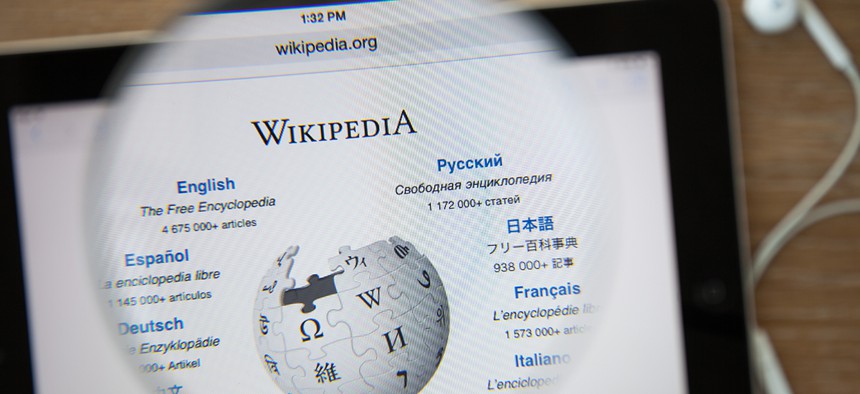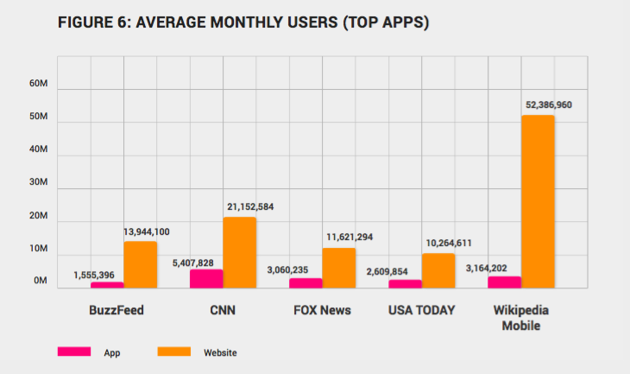The Internet’s Favorite Website

GongTo/Shutterstock.com
As Web traffic shifts toward mobile, a new study finds Wikipedia remains the most popular informational site around.
It’s usually idle curiosity that drives me to Wikipedia. My Web history shows the pages I’ve visited in the last few weeks have included articles about dinosaurs, 19th-century paintings, an explanation of the Tommy Westphall Universe Hypothesis, Civil War-era poetry collections, the 1990s animated adventure series TaleSpin, the Catacombs of Paris, a list of fatal alligator attacks in the United States by decade, Groucho Marx, the 1978 children’s novel "The Great Gilly Hopkins", an abandoned amusement park, the history of the Nintendo Entertainment System, and, for some reason, a list of animals with fraudulent diplomas.
I probably visit Wikipedia every day, often multiple times a day. I’m not alone. Wikipedia has long been one of the most popular sites on the Web—and that’s still the case, even as people increasingly use smartphones to go online.
“Among mobile sites, Wikipedia reigns in terms of popularity,” wrote the authors of a new Knight Foundation report about how people access information on the mobile Web.
People spent more time on Wikipedia’s mobile site than any other news or information site in Knight’s analysis, about 13 minutes per month for the average visitor. CNN wasn’t too far behind, at 9 minutes 45 seconds per month. BuzzFeed clocked in third at 9 minutes 21 seconds per month. (BuzzFeed, however, slays both CNN and Wikipedia in time spent with the sites’ apps, compared with mobile websites. BuzzFeed users devote more than 2 hours per month to its apps, compared with about 46 minutes among CNN app users and 31 minutes among Wikipedia app loyalists.)
Another way to look at Wikipedia’s influence: Wikipedia reaches almost one-third of the total mobile population each month, according to Knight’s analysis, which used data from the audience-tracking firm Nielsen. This is an astounding finding, especially when you consider how Wikipedia stacks up against other informational or news sites.
While Wikipedia has, on average, more than 52 million people reach its site from mobile devices each month, the next most-popular site Knight looked at, CNN, gets less than half of that—about 21 million unique visitors. BuzzFeed had just shy of 14 million average monthly visitors.

Wikipedia’s numbers are less surprising when you consider its history. For one thing, Wikipedia has long been a force on the Web for desktop users. It’s routinely among the top 10 most popular sites, along with giants like Facebook, Amazon, YouTube and Google.
In a news and information context, Wikipedia is a mainstay partly because of its close relationship with several other newsy sites; they often feature Wikipedia links, and vice versa.
“Current news and events are often embedded within Wikipedia entries so it presents an opportunity to learn about an area of interest after reading a news article,” the Knight report says. “What is clear from the Nielsen data is that the popular information site also drives traffic to news. For instance, Wikipedia was one of the top 10 websites visited prior to exploring sites as varied as BuzzFeed, Daily MailOnline, nytimes.com, usatoday.com, washingtonpost.com and Tribune Newspapers.”
On top of that, Wikipedia gets an enormous chunk of its traffic from Google. (Knight specifically looked at the Wikipedia app, rather than just the mobile site, in this case.) That’s because people often wind up at Wikipedia when they go searching for answers to questions or information about people or events—and also because Google tends to give Wikipedia pretty strong standing in its search results.
My colleague, Ian Bogost, suggested to me this may have something to do with Google autocomplete. When Google finishes a search for you, it’s already primed to offer a path to Wikipedia that complements that search. I think Ian’s probably on to something here, but Knight said it wasn’t able to parse out the extent to which Google traffic to Wikipedia was generated by autocompleted searches.
Either way, Wikipedia’s reliance on Google sets the site apart from its peers in news and information. Facebook was by far the dominant traffic driver for nearly every other news or informational app that Knight analyzed (with the exception of the unofficial Reddit app, Reddit is Fun, which gets most of its traffic from YouTube).
Relatedly, Knight found that, in general, people are spending less time on apps other than Facebook, a trend that underscores Facebook’s staggering influence online. But Facebook’s swelling dominance doesn’t appear to be rattling Wikipedia.
Wikipedia declined to offer specifics detailing its monthly unique visitors, but a spokesperson did say the site is gets about 15 billion pageviews a month. And, for what it’s worth, it seems unlikely that anyone will ever read the entire thing. About 7,000 news articles are created every day—or, about five new pages each minute—and 15,000 or so edits are made every hour.
“It would take more than 21 years for someone to read all of English Wikipedia,” she wrote, quoting from a commemorative page the Wikimedia Foundation made for Wikipedia’s 15th anniversary in January. “If you took no breaks and never slept.”





